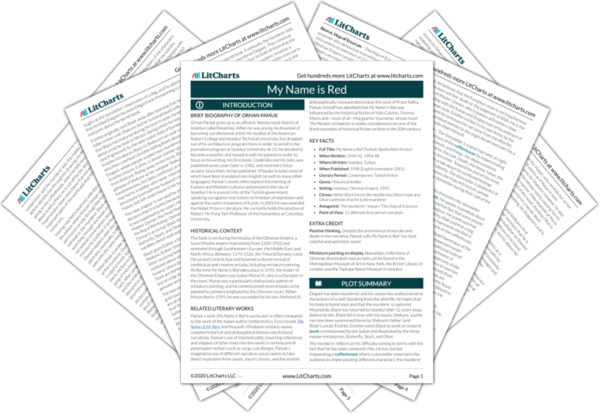The main source of conflict in the novel is a secret book, intended to show off the splendor of the Ottoman Empire, that the Sultan commissions Enishte to create with the help of the master miniaturists. The project is highly controversial, due to the fact that the Sultan asks it to be completed in the European style, rather than in the traditional Islamic style. This is a direct violation of Islamic artistic practice, and several characters—such as Elegant, Master Osman, and the Erzurumis—thus consider the book to be sinful. However, the religious and moral legitimacy of the book is not clear-cut. While the book does violate Islamic doctrine, it is also intended to be a celebration of Islam, and it is commissioned by the Sultan, who is a religious leader as well as a political one. Although the book may not be a sin against God, it nonetheless has a powerful and sinister impact on Istanbul society. The arguments over the propriety of the book lead many Muslims to sins including murder. This highlights the theme that people’s obsession with virtue and sin can end up having a harmful effect, creating needless conflict and even fatal violence. At the same time, it’s unclear whether the book was the real cause of the murders, or whether the murderer used it as an excuse to kill Enishte. Often in the novel people denounce sin as a way of furthering their own power and authority, rather than as a sincere gesture of faith. Each of the characters’ position on the book, then, can be seen as guided not only by their religious beliefs, but also their own self-interest.
The Book Quotes in My Name is Red
Had Enishte Effendi’s book been completed and sent to them, the Venetian masters would've smirked, and their ridicule would’ve reached the Venetian Doge––that is all. They'd have quipped that the Ottomans have given up being Ottoman and would no longer fear us.










